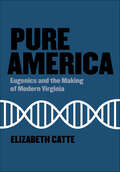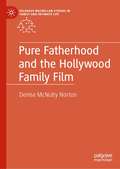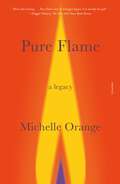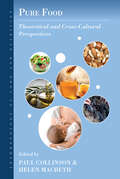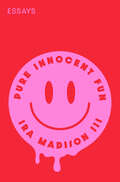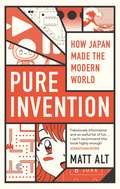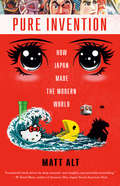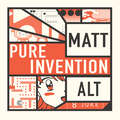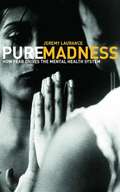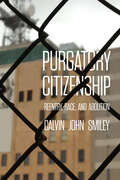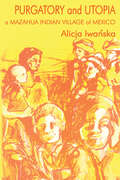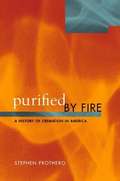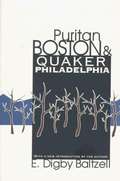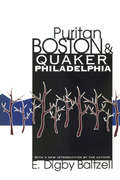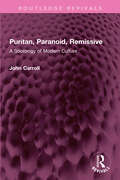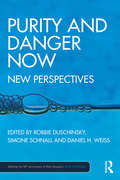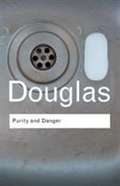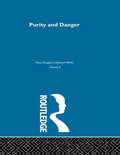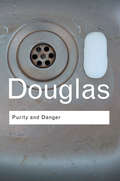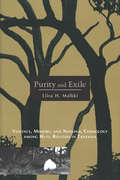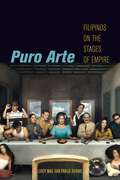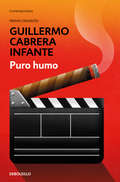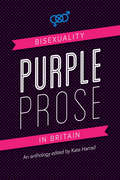- Table View
- List View
Pure America: Eugenics and the Making of Modern Virginia
by Elizabeth CatteLonglisted for the 2022 PEN America John Kenneth Galbraith Award for Nonfiction, a "riveting and tightly argued" history of eugenics and its ripple effects, by acclaimed historian Elizabeth Catte. Between 1927 and 1979
Pure Fatherhood and the Hollywood Family Film (Palgrave Macmillan Studies in Family and Intimate Life)
by Denise McNulty NortonThis book maps father failure and redemption through three decades of Hollywood family films, revealing how libertarian notions that align agency with autonomy lead to new conflicts for the contemporary father. The films find resolution to these conflicts through a re-gendering of parenting as relationship. In their creation of a ‘pure’ fatherhood that is valorised as authentic for its lack of parental responsibilities, the films serve to challenge the perception that fathering enacted outside the nuclear family structure is fragile. McNulty Norton finds in the films a new essentialism that secures the pure relationship to the biological father, reinforcing his position in the face of changing family forms.
Pure Flame: A Legacy
by Michelle OrangeAn intellectual, personal, and ultimately ferocious reckoning with feminism, family, and motherhood from a celebrated critic.During one of the texting sessions that became our habit over the period I now think of as both late and early in our relationship, my mother revealed the existence of someone named Janis Jerome.So begins Michelle Orange’s extraordinary inquiry into the meaning of maternal legacy—in her own family and across a century of seismic change. Jerome, she learns, is one of her mother’s many alter egos: the name used in a case study, eventually sold to the Harvard Business Review, about her mother’s midlife choice to leave her husband and children to pursue career opportunities in a bigger city. A flashpoint in the lives of both mother and daughter, the decision forms the heart of a broader exploration of the impact of feminism on what Adrienne Rich called “the great unwritten story”: that of the mother-daughter bond.The death of Orange’s maternal grandmother at nearly ninety-six and the fear that her mother’s more “successful” life will not be as long bring new urgency to her questions about the woman whose absence and anger helped shape her life. Through a blend of memoir, social history, and cultural criticism, Pure Flame pursues a chain of personal, intellectual, and collective inheritance, tracing the forces that helped transform the world and what a woman might expect from it. Told with warmth and rigor, Orange’s account of her mother’s life and their relationship is pressurized in critical and unexpected ways, resulting in an essential, revelatory meditation on becoming, selfhood, freedom, mortality, storytelling, and what it means to be a mother’s daughter now.
Pure Food: Theoretical and Cross-Cultural Perspectives (Anthropology of Food & Nutrition #12)
by Helen Macbeth Paul CollinsonIn presenting a variety of theoretical and cross-cultural perspectives on pure food, this volume demonstrates similarities and variations in cultural beliefs, behaviours and practices in different societies. These in turn highlight that pure food is a common issue for humanity, whatever the society, whatever the era. As a subject with much contemporary and cross-disciplinary relevance, Pure Food will appeal to students and academics involved in any food-related discipline, to professional practitioners promoting healthier foods and nutrition and to general readers with an interest in food.
Pure Innocent Fun: Essays
by Ira Madison IIIIn this nostalgic and raucous collection of sixteen original essays, Ira Madison III—critic, television writer, and host of the beloved Keep It podcast—combines memoir and criticism to offer a brand-new pop-culture manifesto.&“This is the most fun I&’ve had reading all year. Like Chuck Klosterman before him, Ira Madison III takes seriously and analyzes the pop culture detritus that took up hours of our lives.&”—Lin-Manuel MirandaYou can recall the first TV show, movie, book, or song that made you feel understood—that shaped how you live, what you love, and whom you would become. It gave you an entire worldview. For Ira Madison, that book was Chuck Klosterman&’s Sex, Drugs, and Cocoa Puffs, which cemented the idea that pop culture could be a rigorous subject—and that, for better or worse, it shapes all of us.In Pure Innocent Fun, Madison explores the key cultural moments that inspired his career as a critic and guided his coming of age as a Black gay man in Milwaukee. In this hilarious, full-throttle trip through the &’90s and 2000s, he recounts learning about sex from Buffy the Vampire Slayer; facing the most heartbreaking election of his youth (not George W. Bush&’s win, but Jennifer Hudson losing American Idol); and how never getting his driver&’s license in high school made him just like Cher Horowitz in Clueless: &“a virgin who can&’t drive.&”Brimming with a profound love for a bygone culture and alternating between irreverence and heartfelt insight, Pure Innocent Fun, like all the best products of pop culture, will leave you entertained and surprisingly enlightened.
Pure Invention: How Japan's Pop Culture Conquered the World
by Matt Alt'Amazingly well researched, fabulously informative and an awful lot of fun. If you love Japanese culture or are just curious to know more I can't recommend this book highly enough' Jonathan Ross'A nerd- and generalist-friendly look at how Japan shaped the post-World War II world, from toys to Trump . . . A non-native's savvy study of Japan's wide influence in ways both subtle and profound' KirkusThe Walkman. Karaoke. Pikachu. Pac-Man. Akira. Emoji. We've all fallen in love with one or another of Japan's pop-culture creations, from the techy to the wild to the super-kawaii. But as Japanese-media veteran Matt Alt proves in this brilliant investigation of Tokyo's pop-fantasy complex, we don't know the half of it.Japan's toys, gadgets, and fantasy worlds didn't merely entertain. They profoundly transformed the way we live. In the 1970s and '80s, Japan seemed to exist in some near future, soaring on the superior technology of Sony and Toyota while the West struggled to catch up. Then a catastrophic 1990 stock-market crash ushered in the 'lost decades' of deep recession and social dysfunction.The end of the boom times should have plunged Japan into irrelevance, but that's precisely when its cultural clout soared - when, once again, Japan got to the future a little ahead of the rest of us. Hello Kitty, the Nintendo Entertainment System, and multimedia empires like Pokémon and Dragon Ball Z were more than marketing hits. Artfully packaged, dangerously cute, and dizzyingly fun, these products made Japan the forge of the world's fantasies, and gave us new tools for coping with trying times. They also transformed us as we consumed them - connecting as well as isolating us in new ways, opening vistas of imagination and pathways to revolution. Through the stories of an indelible group of artists, geniuses, and oddballs, Pure Invention reveals how Japanese ingenuity remade global culture and may have created modern life as we know it. It's Japan's world; we're just gaming, texting, singing, and dreaming in it.
Pure Invention: How Japan's Pop Culture Conquered the World
by Matt AltThe untold story of how Japan became a cultural superpower through the fantastic inventions that captured—and transformed—the world&’s imagination. &“A masterful book driven by deep research, new insights, and powerful storytelling.&”—W. David Marx, author of Ametora: How Japan Saved American StyleThe Walkman. Karaoke. Pikachu. Pac-Man. Akira. Emoji. We&’ve all fallen in love with one or another of Japan&’s pop-culture creations, from the techy to the wild to the super-kawaii. But as Japanese media veteran Matt Alt proves in this brilliant investigation of Tokyo&’s pop-fantasy complex, we don&’t know the half of it. Japan&’s toys, gadgets, and imaginary worlds didn&’t merely entertain. They profoundly transformed the way we live. In the 1970s and &’80s, Japan seemed to exist in some near future, gliding on the superior technology of Sony and Toyota while the West struggled to catch up. Then a catastrophic 1990 stock-market crash ushered in the &“lost decades&” of deep recession and social dysfunction. The end of the boom times should have plunged Japan into irrelevance, but that&’s precisely when its cultural clout soared—when, once again, Japan got to the future a little ahead of the rest of us. Hello Kitty, the Nintendo Entertainment System, and multimedia empires like Pokémon and Dragon Ball Z were more than marketing hits. Artfully packaged, dangerously cute, and dizzyingly fun, these products made Japan the forge of the world&’s fantasies, and gave us new tools for coping with trying times. They also transformed us as we consumed them—connecting as well as isolating us in new ways, opening vistas of imagination and pathways to revolution. Through the stories of an indelible group of artists, geniuses, and oddballs, Pure Invention reveals how Japanese ingenuity remade global culture and may have created modern life as we know it. It&’s Japan&’s world; we&’re just gaming, texting, singing, and dreaming in it.
Pure Invention: How Japan's Pop Culture Conquered the World
by Matt Alt'Amazingly well researched, fabulously informative and an awful lot of fun. If you love Japanese culture or are just curious to know more I can't recommend this book highly enough' Jonathan Ross'A nerd- and generalist-friendly look at how Japan shaped the post-World War II world, from toys to Trump . . . A non-native's savvy study of Japan's wide influence in ways both subtle and profound' KirkusThe Walkman. Karaoke. Pikachu. Pac-Man. Akira. Emoji. We've all fallen in love with one or another of Japan's pop-culture creations, from the techy to the wild to the super-kawaii. But as Japanese-media veteran Matt Alt proves in this brilliant investigation of Tokyo's pop-fantasy complex, we don't know the half of it.Japan's toys, gadgets, and fantasy worlds didn't merely entertain. They profoundly transformed the way we live. In the 1970s and '80s, Japan seemed to exist in some near future, soaring on the superior technology of Sony and Toyota while the West struggled to catch up. Then a catastrophic 1990 stock-market crash ushered in the 'lost decades' of deep recession and social dysfunction.The end of the boom times should have plunged Japan into irrelevance, but that's precisely when its cultural clout soared - when, once again, Japan got to the future a little ahead of the rest of us. Hello Kitty, the Nintendo Entertainment System, and multimedia empires like Pokémon and Dragon Ball Z were more than marketing hits. Artfully packaged, dangerously cute, and dizzyingly fun, these products made Japan the forge of the world's fantasies, and gave us new tools for coping with trying times. They also transformed us as we consumed them - connecting as well as isolating us in new ways, opening vistas of imagination and pathways to revolution. Through the stories of an indelible group of artists, geniuses, and oddballs, Pure Invention reveals how Japanese ingenuity remade global culture and may have created modern life as we know it. It's Japan's world; we're just gaming, texting, singing, and dreaming in it.
Pure Madness: How Fear Drives the Mental Health System
by Jeremy LaurancePublic alarm for random attacks by mentally ill people is at an all-time high. The brutal killing of Jill Dando, the TV personality, and the assault on George Harrison, the former Beatle, are among the cases which have undermined confidence in the mental health service. Community care is widely seen as a failed policy that has left too many people walking the streets, posing a risk to themselves and a threat to others. The Government has responded with a programme of change billed as the biggest reform in forty years, but will it achieve the 'safe, sound, supportive' service as promised?For Pure Madness, Jeremy Laurance travelled across the country observing the care provided to mentally ill people in Britain today. Based on interviews, visits and case histories, his book reveals a service driven by fear.
Purgatory Citizenship: Reentry, Race, and Abolition
by Calvin John SmileyReentry after release from incarceration is often presented as a story of redemption. Unfortunately, this is not the reality. Those being released must navigate the reentry process with diminished legal rights and amplified social stigmas, in a journey that is often confusing, complex, and precarious. Making use of life-history interviews, focus groups, and ethnographic fieldwork with low-income urban residents of color, primarily Black men, Calvin John Smiley finds that reentry requires the recently released to negotiate a web of disjointed and often contradictory systems that serve as an extension of the carceral system. No longer behind bars but not fully free, the recently released navigate a state of limbo that deprives them of opportunity and support while leaving them locked in a cycle of perpetual punishment. Warning of the dangers of reformist efforts that only serve to further entrench carceral systems, Purgatory Citizenship advocates for abolitionist solutions rooted in the visions of the people most affected.
Purgatory and Utopia: A Mazahua Indian Village of Mexico
by Alicja IwanskaThe conflict between a people's determination to preserve their socio-cultural identity and the aspiration toward technological progress and knowledge has become common in the age of globalization. One people that has remarkably kept a balance between tradition and progress are the Mazahuas of Central Mexico. Purgatory and Utopia, now available in paperback, describes how the Mazahuas have preserved their cultural identity and some of their ancient social institutions, while at the same time modifying their lifestyles, in a gradual, natural way.
Purified by Fire: A History of Cremation in America
by Stephen R. ProtheroThis is the first book-length history of cremation in the United States.
Purifying Empire: Obscenity and the Politics of Moral Regulation in Britain, India and Australia
by Deana HeathPurifying Empire explores the material, cultural and moral fragmentation of the boundaries of imperial and colonial rule in the British Empire in the late nineteenth and early twentieth centuries. It charts how a particular bio-political project, namely the drive to regulate the obscene in late nineteenth-century Britain, was transformed from a national into a global and imperial venture and then re-localized in two different colonial contexts, India and Australia, to serve decidedly different ends. While a considerable body of work has demonstrated both the role of empire in shaping moral regulatory projects in Britain and their adaptation, transformation and, at times, rejection in colonial contexts, this book illustrates that it is in fact only through a comparative and transnational framework that it is possible to elucidate both the temporalist nature of colonialism and the political, racial and moral contradictions that sustained imperial and colonial regimes.
Puritan Boston And Quaker Philadelphia
by E. Digby BaltzellBased on the biographies of some three hundred people in each city, this book shows how such distinguished Boston families as the Adamses, Cabots, Lowells, and Peabodys have produced many generations of men and women who have made major contributions to the intellectual, educational, and political life of their state and nation. At the same time, comparable Philadelphia families such as the Biddles, Cadwaladers, Ingersolls, and Drexels have contributed far fewer leaders to their state and nation. From the days of Benjamin Franklin and Stephen Girard down to the present, what leadership there has been in Philadelphia has largely been provided by self-made men, often, like Franklin, born outside Pennsylvania. Baltzell traces the differences in class authority and leadership in these two cites to the contrasting values of the Puritan founders of the Bay Colony and the Quaker founders of the City of Brotherly Love. While Puritans placed great value on the "calling" or devotion to one's chosen vocation, Quakers have always placed more emphasis on being a good person than on being a good judge or statesman. Puritan Boston and Quaker Philadelphia presents a provocative view of two contrasting upper classes and also reflects the author's larger concern with the conflicting values of hierarchy and egalitarianism in American history.
Puritan Boston and Quaker Philadelphia
by E. Digby BaltzellBased on the biographies of some three hundred people in each city, this book shows how such distinguished Boston families as the Adamses, Cabots, Lowells, and Peabodys have produced many generations of men and women who have made major contributions to the intellectual, educational, and political life of their state and nation. At the same time, comparable Philadelphia families such as the Biddles, Cadwaladers, Ingersolls, and Drexels have contributed far fewer leaders to their state and nation. From the days of Benjamin Franklin and Stephen Girard down to the present, what leadership there has been in Philadelphia has largely been provided by self-made men, often, like Franklin, born outside Pennsylvania.Baltzell traces the differences in class authority and leadership in these two cites to the contrasting values of the Puritan founders of the Bay Colony and the Quaker founders of the City of Brotherly Love. While Puritans placed great value on the calling or devotion to one's chosen vocation, Quakers have always placed more emphasis on being a good person than on being a good judge or statesman. Puritan Boston and Quaker Philadelphia presents a provocative view of two contrasting upper classes and also reflects the author's larger concern with the conflicting values of hierarchy and egalitarianism in American history.
Puritan Boston and Quaker Philadelphia
by E. Digby BaltzellBased on the biographies of some three hundred people in each city, this book shows how such distinguished Boston families as the Adamses, Cabots, Lowells, and Peabodys have produced many generations of men and women who have made major contributions to the intellectual, educational, and political life of their state and nation. At the same time, comparable Philadelphia families such as the Biddles, Cadwaladers, Ingersolls, and Drexels have contributed far fewer leaders to their state and nation. From the days of Benjamin Franklin and Stephen Girard down to the present, what leadership there has been in Philadelphia has largely been provided by self-made men, often, like Franklin, born outside Pennsylvania.Baltzell traces the differences in class authority and leadership in these two cites to the contrasting values of the Puritan founders of the Bay Colony and the Quaker founders of the City of Brotherly Love. While Puritans placed great value on the calling or devotion to one's chosen vocation, Quakers have always placed more emphasis on being a good person than on being a good judge or statesman. Puritan Boston and Quaker Philadelphia presents a provocative view of two contrasting upper classes and also reflects the author's larger concern with the conflicting values of hierarchy and egalitarianism in American history.
Puritan, Paranoid, Remissive: A Sociology of Modern Culture (Routledge Revivals)
by John CarrollFirst published in 1977, Puritan, Paranoid, Remissive investigates the process of the transformation of Western society in the twentieth century. The author questions assumptions of sociological fashion and goes beyond the descriptions of changes in the economy, government, education, the family, work, leisure and the arts, to a deeper level of historical cause. He proposes three-character types, or patterns of psychological disposition, to indicate respectively the ‘Puritan’ past that is waning, the immediate ‘paranoid’ past that has exemplified society’s crisis of transition, and the ‘remissive’ future, whose ideology already permeates the present. These types reflect his leading theme – the historical decline of the authority of the individual. John Carroll believes that culture has moved faster than character. Focusing on what is conventionally the upper middle class – the bourgeoisie – he proposes the emergence of a new ‘remissive’ culture from the ruins of the old Puritan order, and concludes that the pathology, the remiss nervousness of contemporary Westerners, results from their futile attempts to adapt their enduring Puritan disposition to their hedonist ideals. The twenty-first century carries remnants of this transformation and will be of interest to students of sociology, philosophy, history and political science.
Purity and Danger Now: New Perspectives
by Robbie Duschinsky Simone Schnall Daniel H WeissMary Douglas’s seminal work Purity and Danger (Routledge, 1966) continues to be indispensable reading for both students and scholars today. Marking the 50th anniversary of Douglas’s classic, the present volume sheds fresh light upon themes raised by Douglas by drawing on recent developments in the social sciences and humanities, as well as current empirical research. In presenting new perspectives on the topic of purity and impurity, the volume integrates work in anthropology and sociology with contemporary ideas from religious studies, cognitive science and the arts. Containing contributions from both established and emerging scholars, including protégées of Douglas herself, Purity and Danger Now is an essential volume for those working on purity and impurity across the full spectrum of the social sciences and humanities.
Purity and Danger: An Analysis of Concepts of Pollution and Taboo
by Mary DouglasIn Purity and Danger Mary Douglas identifies the concern for purity as a key theme at the heart of every society. In lively and lucid prose she explains its relevance for every reader by revealing its wide-ranging impact on our attitudes to society, values, cosmology and knowledge. The book has been hugely influential in many areas of debate - from religion to social theory. But perhaps its most important role is to offer each reader a new explanation of why people behave in the way they do
Purity and Danger: An Analysis of Concepts of Pollution and Taboo (Collected Works)
by Mary Douglas Professor Mary DouglasPurity and Danger is acknowledged as a modern masterpiece of anthropology. It is widely cited in non-anthropological works and gave rise to a body of application, rebuttal and development within anthropology. In 1995 the book was included among the Times Literary Supplement's hundred most influential non-fiction works since WWII. Incorporating the philosophy of religion and science and a generally holistic approach to classification, Douglas demonstrates the relevance of anthropological enquiries to an audience outside her immediate academic circle. She offers an approach to understanding rules of purity by examining what is considered unclean in various cultures. She sheds light on the symbolism of what is considered clean and dirty in relation to order in secular and religious, modern and primitive life.
Purity and Danger: An Analysis of Concepts of Pollution and Taboo (Routledge Classics)
by Professor Mary DouglasIn Purity and Danger Mary Douglas identifies the concern for purity as a key theme at the heart of every society. In lively and lucid prose she explains its relevance for every reader by revealing its wide-ranging impact on our attitudes to society, values, cosmology and knowledge. The book has been hugely influential in many areas of debate - from religion to social theory. But perhaps its most important role is to offer each reader a new explanation of why people behave in the way they do. With a specially commissioned introduction by the author which assesses the continuing significance of the work thirty-five years on, this Routledge Classics edition will ensure that Purity and Danger continues to challenge and question well into the new millennium.
Purity and Exile: Violence, Memory, and National Cosmology among Hutu Refugees in Tanzania
by Liisa H. MalkkiIn this study of Hutu refugees from Burundi, driven into exile in Tanzania after their 1972 insurrection against the dominant Tutsi was brutally quashed, Liisa Malkki shows how experiences of dispossession and violence are remembered and turned into narratives, and how this process helps to construct identities such as "Hutu" and "Tutsi." Through extensive fieldwork in two refugee communities, Malkki finds that the refugees' current circumstances significantly influence these constructions. Those living in organized camps created an elaborate "mythico-history" of the Hutu people, which gave significance to exile, and envisioned a collective return to the homeland of Burundi. Other refugees, who had assimilated in a more urban setting, crafted identities in response to the practical circumstances of their day to day lives. Malkki reveals how such things as national identity, historical consciousness, and the social imagination of "enemies" get constructed in the process of everyday life. The book closes with an epilogue looking at the recent violence between Hutu and Tutsi in Rwanda and Burundi, and showing how the movement of large refugee populations across national borders has shaped patterns of violence in the region.
Puro Arte: Filipinos on the Stages of Empire (Postmillennial Pop #9)
by Lucy Mae BurnsWinner of the 2012 Outstanding Book Award in Cultural Studies, Association for Asian American Studies Puro Arte explores the emergence of Filipino American theater and performance from the early 20th century to the present. It stresses the Filipino performing body's location as it conjoins colonial histories of the Philippines with U.S. race relations and discourses of globalization.Puro arte, translated from Spanish into English, simply means “pure art.” In Filipino, puro arte however performs a much more ironic function, gesturing rather to the labor of over-acting, histrionics, playfulness, and purely over-the-top dramatics. In this book, puro arte functions as an episteme, a way of approaching the Filipino/a performing body at key moments in U.S.-Philippine imperial relations, from the 1904 St. Louis World’s Fair, early American plays about the Philippines, Filipino patrons in U.S. taxi dance halls to the phenomenon of Filipino/a actors in Miss Saigon. Using this varied archive, Puro Arte turns to performance as an object of study and as a way of understanding complex historical processes of racialization in relation to empire and colonialism.
Puro humo
by Guillermo Cabrera InfanteUna rapsodia al acto de fumar y una crónica erudita sobre la relación entre el puro y el cine, con el característico humor de Guillermo Cabrera Infante. Según Guillermo Cabrera Infante, «Puro humo es varios libros a la vez: una historia del tabaco que empieza con su descubrimiento en 1492 por un marino de la nao capitana, Rodrigo de Jerez [...], una celebración del tabaco y del fumar esa hoja extraña, y una rapsodia en que intervienen el cigarrillo y la pipa. Pero es más que nada una crónica erudita de la relación entre el puro y el cine». Cabe añadir que se trata de uno de los mejores ejemplos de la versatilidad de Cabrera Infante, que publicó el libro originalmente en 1985 en inglés después de pasar media vida en Londres, donde utilizaba ese idioma como guionista, articulista y crítico literario. Pospuesta un tiempo, la versión española acabó siendo, no una traducción al uso, sino una reescritura en toda regla que conserva la inventiva y frescura del original. La crítica ha dicho:«Guillermo Cabrera Infante era un grandísimo escritor.»Mario Vargas Llosa «Uno de los mayores y mejores renovadores de la prosa en castellano, un clásico de vanguardia.»Fernando Savater «Su talento verbal era extraordinario, tanto de viva voz como por escrito, aunque esto último lo sepa cualquiera que haya leído sus libros.»Javier Marías «Cabrera Infante trajo al sector desarraigado a la fuerza de Cuba las virtudes de la parodia, la sátira y el humor.»José Miguel Oviedo, Letras Libres
Purple Prose
by Kate HarradPurple Prose: Bisexuality in Britain is the first of its kind: a book written for and by bisexuals in the UK. This accessible collection of interviews, essays, poems and commentary explores topics such as definitions of bisexuality, intersections of bisexuality with other identities, stereotypes and biphobia, being bisexual at work, teenage bisexuality and bisexuality through the years, the media's approach to bisexual celebrities, and fictional bisexual characters. Filled with raw, honest, first-person accounts as well as thoughts from leading bisexual activists in the UK, this is the book you'll buy for your friend who's just come out to you as bi-curious, or for your parents who think your bisexuality is weird or a phase, or for yourself, because you know you're bi but you don't know where to go or what to do about it.
